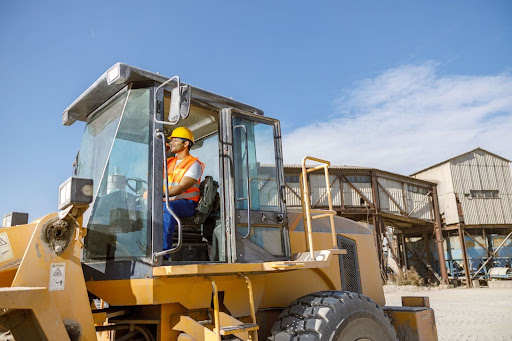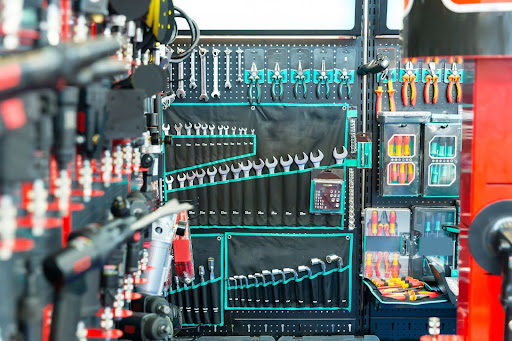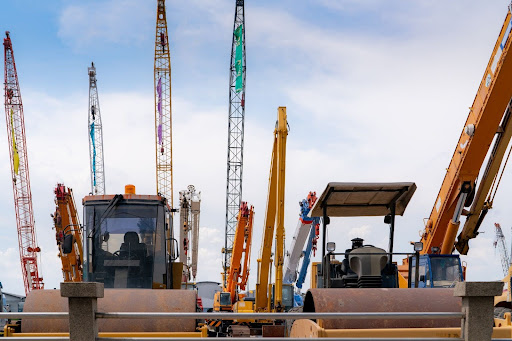For many business owners, access to the right tools and machinery can mean the difference between staying competitive and falling behind. From heavy construction equipment to smaller assets like computers or office furniture, purchasing the gear you need often requires a large amount of cash up front. Paying for equipment in advance isn’t always realistic, especially for growing companies that need to protect working capital for payroll, marketing, or other essential expenses.
That’s where financing for equipment comes in. By spreading the cost of an asset across manageable payments, businesses can secure the equipment they need today without straining budgets or limiting growth opportunities. Whether it’s an equipment loan that leads to ownership or an equipment lease that prioritizes flexibility, these financing options allow companies of all sizes to access vital resources while keeping their finances stable.
At the same time, navigating lenders, comparing terms, and understanding agreements can be overwhelming for busy business leaders. This is where Charter Capital helps. With decades of expertise, access to competitive rates, and a streamlined process, Charter Capital connects businesses with customized financing solutions that make sense for both large and small equipment purchases.
In this guide, we’ll explore how equipment financing works for different types of purchases, compare the benefits of loans versus leases, break down typical terms and requirements, and highlight what to look for in a financing agreement. By the end, you’ll have a clear roadmap for choosing the right funding path to support your business operations.
Understanding Equipment Financing
When businesses need new equipment—whether large or small—one of the first questions is how to pay for it. Buying equipment outright can put a strain on cash reserves, especially for small and mid-sized companies. That’s where equipment financing comes in. It gives businesses flexibility and options to secure the tools they need without halting growth.
The thought process behind equipment financing often starts with weighing immediate needs against long-term goals. Companies ask: How quickly do we need this equipment? How long will it remain useful? What’s the impact on our cash flow if we pay upfront? These considerations help determine whether financing, leasing, or outright purchase is the best path forward.
Key elements to evaluate include:
- Cost vs. Value: Is the equipment essential for productivity or revenue generation?
- Lifespan of Equipment: Will it still provide value after the financing term ends?
- Cash Flow Impact: Does spreading payments over time keep operations running smoothly?
- Business Flexibility: Would leasing or shorter financing terms allow for easier upgrades as technology evolves?
By thinking through these factors, businesses can match their financing structure to their operational needs. The beauty of equipment financing lies in its flexibility—companies can choose from loans, leases, or hybrid options to secure equipment in a way that makes the most sense for them. This flexibility helps businesses continue moving forward without sacrificing stability.
Business Equipment: Leasing vs. Financing

When it comes to acquiring business equipment, the choice often comes down to whether you should pursue an equipment loan or lease. Both financing paths can provide access to the machinery, vehicles, or tools your company needs, but they differ in important ways that can impact your budget, tax strategy, and long-term goals.
With an equipment loan, a business borrows funds to purchase equipment outright. Once the loan payments are complete, the company owns the asset, which can then be resold, depreciated for tax purposes, or used indefinitely. This option makes the most sense when the equipment has a long useful life, retains strong resale value, or is critical for ongoing business operations.
On the other hand, an equipment lease functions more like a rental agreement. The financing company retains ownership of the asset, while the business makes regular monthly payments to use it. At the end of the lease term, the business may return the equipment, renew the lease, or in some cases, buy it at a discounted rate. Leasing equipment often appeals to businesses that need short-term solutions, want to avoid maintenance responsibilities, or regularly upgrade to the latest technology.
The decision between a loan or lease comes down to your priorities. If ownership and long-term value are important, a loan may be the better choice. If flexibility, lower upfront costs, and predictable payments are more attractive, leasing contracts may align better with your financial strategy.
By carefully evaluating how each option fits into your company’s growth plan, you can choose the financing structure that strengthens your cash flow while ensuring access to the types of equipment you need.
Equipment Loan Options for Large Purchases

When it comes to acquiring heavy equipment—such as bulldozers, cranes, excavators, or company vehicles—the costs can easily reach into the hundreds of thousands of dollars. For most business owners, paying for this kind of equipment upfront isn’t realistic. That’s why many turn to an equipment loan, which allows them to spread the purchase across predictable payments over time.
Loan Amounts and Down Payment Requirements
Most lenders will cover 80% to 100% of the equipment cost, leaving businesses responsible for a down payment of anywhere between 10% and 20%. Businesses with strong credit quality and proven financial statements may qualify for little to no money down, while startups or those with weaker credit histories usually need to contribute more upfront.
Typical Loan Terms for Large Equipment
The loan term for large business equipment loans usually ranges from 36 to 84 months (3 to 7 years). The length of the loan is typically tied to the expected lifespan and value of the equipment. For example:
- 36–48 months for used equipment that may depreciate faster
- 60–84 months for new or long-lasting machinery
Longer loan terms lower your monthly payments, but they also increase the total interest expenses over time.
Credit Requirements and Difficulty of Approval
Securing financing for large equipment purchases generally requires a minimum credit score of 600–650, though the best interest rate offers are reserved for borrowers above 700. Lenders will also evaluate several factors such as time in business, annual revenue, and the type of equipment being financed. While established companies with solid cash flow often receive fast approvals, newer businesses or those with weak credit may face more difficulty and stricter terms.
Risks to Consider
While financing makes large purchases more attainable, it also comes with risks. Businesses that overextend with long loan terms or underestimate cash flow needs may find themselves struggling to keep up with loan payments. In addition, some lenders may include hidden fees, balloon payments, or rigid structures that make refinancing difficult. Working with a broker can help identify the right lenders who offer flexible terms and competitive rates for your industry.
For businesses that rely heavily on construction equipment or industrial machinery, an equipment loan provides a reliable way to invest in growth without draining vital funds—but only if the loan is structured carefully.
Equipment Lease Solutions for Smaller Purchases

Not all equipment needs are massive investments. Many businesses require smaller but equally essential items—like computers, restaurant equipment, or office furniture—that still come with a significant price tag if purchased all at once. For most business owners, paying for these types of equipment upfront can still create cash flow challenges. That’s where an equipment lease offers an attractive option.
Lease Amounts and Upfront Costs
Unlike loans, leases often require little to no down payment, making them more accessible for businesses with limited cash reserves. Lease agreements usually cover the full cost of the equipment, allowing companies to conserve funds for other operational needs.
Typical Lease Terms for Smaller Equipment
The lease term for smaller business equipment is generally shorter than for large equipment loans, ranging from 12 to 60 months depending on the asset. For example:
- 12–24 months for technology that quickly becomes outdated
- 36–60 months for equipment with a longer useful life, like commercial kitchen appliances
Shorter lease terms provide businesses with the ability to upgrade regularly, while longer terms reduce monthly payments and create predictable budgeting.
Credit Requirements and Ease of Approval
Because leasing companies retain ownership of the equipment, credit requirements are often less strict than with loans. This makes it easier for startups or businesses with limited credit quality to get approved. Many lenders focus more on the type of equipment being leased and the business’s ability to make consistent payments, rather than requiring extensive collateral or lengthy financial histories.
Risks to Consider
While leasing provides flexibility, it can be more expensive over time if a business continues to lease rather than buy. At the end of the lease term, companies don’t own the equipment unless a purchase option is included in the agreement. Additionally, some leases may contain restrictions on equipment usage or penalties for early termination. Careful review of the contract is critical to avoid unexpected costs.
For businesses managing smaller, recurring equipment needs, an equipment lease offers a cost-effective way to stay competitive, preserve working capital, and keep operations running smoothly without overextending financially.
How Equipment Financing Helps Businesses Grow

Equipment financing isn’t just about affording machinery—it’s a strategy for driving long-term business growth. By freeing up cash flow and giving you access to the tools you need, financing can help your company expand faster and more efficiently.
Preserve Working Capital
Instead of draining cash reserves on a large upfront purchase, financing spreads costs out over time. This leaves you with more working capital to invest in payroll, marketing, inventory, or other core operations that keep your business running smoothly.
Scale Operations Quickly
Need to take on a larger project or expand production capacity? Equipment financing allows you to secure additional machinery or vehicles right away—without waiting years to save for the purchase. This makes it easier to seize new opportunities as they arise.
Stay Competitive with Modern Equipment
Outdated or unreliable equipment can slow productivity and hurt your bottom line. Financing makes it possible to upgrade regularly, so your team always has access to the latest tools, technology, and safety features.
Improve Efficiency and Revenue
The right equipment doesn’t just get the job done—it often gets it done faster and more efficiently. That translates into higher output, reduced downtime, and ultimately greater revenue potential.
Build Business Credit
Successfully paying off equipment loans or leases helps strengthen your business credit profile. Strong credit makes it easier (and more affordable) to secure future financing for expansion.
Need to Secure Financing?
When it comes to equipment financing, not all lenders are created equal. At Charter Capital, we specialize in helping businesses across industries secure the funding they need to purchase, lease, or upgrade essential equipment—without the hassle and delays of traditional bank loans.
Why Work with Charter Capital?
- Industry Expertise
With decades of experience in equipment financing, our team understands the unique needs of industries like construction, manufacturing, transportation, and more. We tailor financing solutions to fit your business—not the other way around. - Flexible Options
Whether you’re interested in loans, leases, or exploring SBA-backed financing, we offer multiple structures to meet your cash flow and tax planning needs. - Fast Approvals
Time is money, especially when you’re competing for projects. Our streamlined application and approval process helps you secure funding quickly so you can move forward without costly delays. - Personalized Service
Unlike big banks, we take a relationship-based approach. Our advisors work closely with you to understand your goals and craft financing that supports long-term growth. - Proven Track Record
Thousands of businesses nationwide have trusted Charter Capital to finance their equipment needs. Our reputation is built on trust, transparency, and consistent results.
How It Works
- Apply Online or by Phone – Submit a quick application with basic business and equipment details.
- Get a Tailored Financing Plan – We review your information and provide flexible options designed for your situation.
- Secure Your Equipment – Once approved, funds are released quickly so you can acquire or lease the equipment you need.
- Grow Your Business – With financing in place, you can keep projects moving, expand capacity, and increase profitability.

